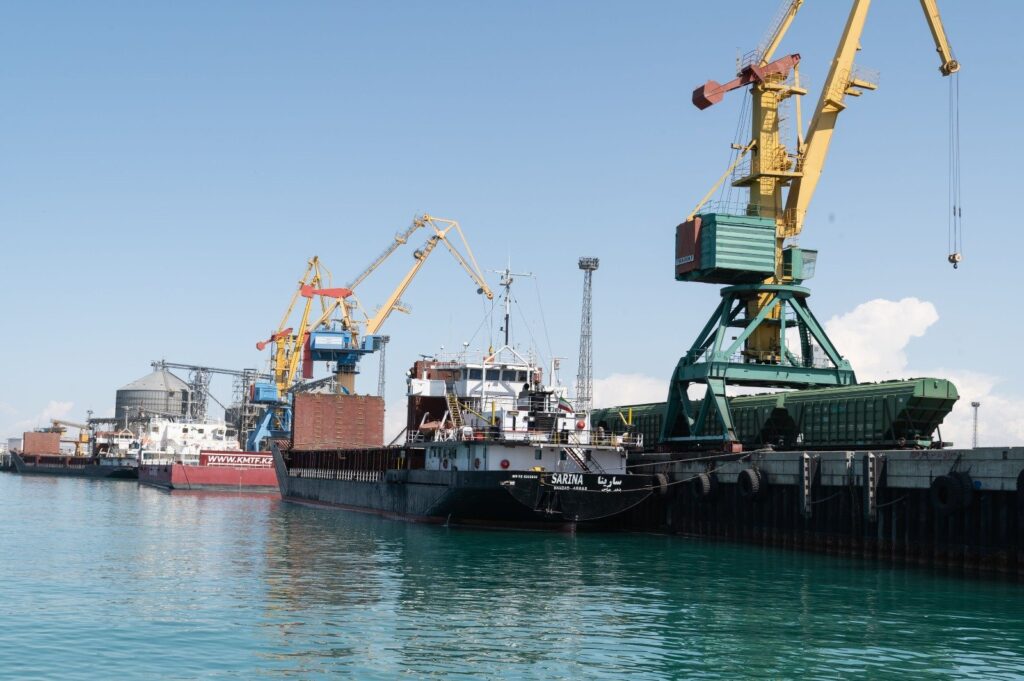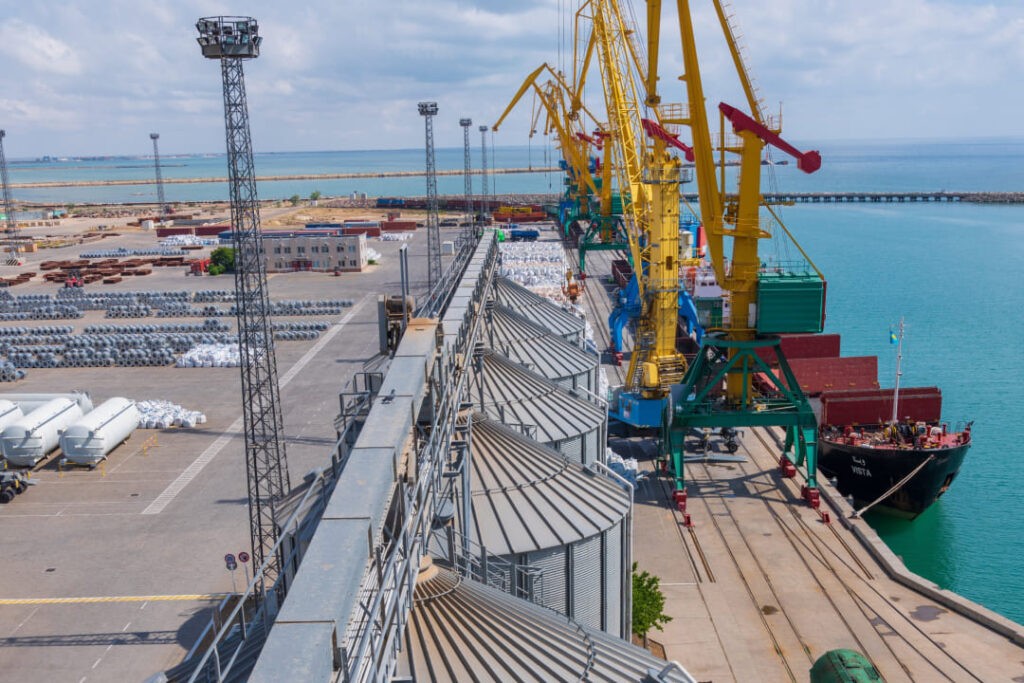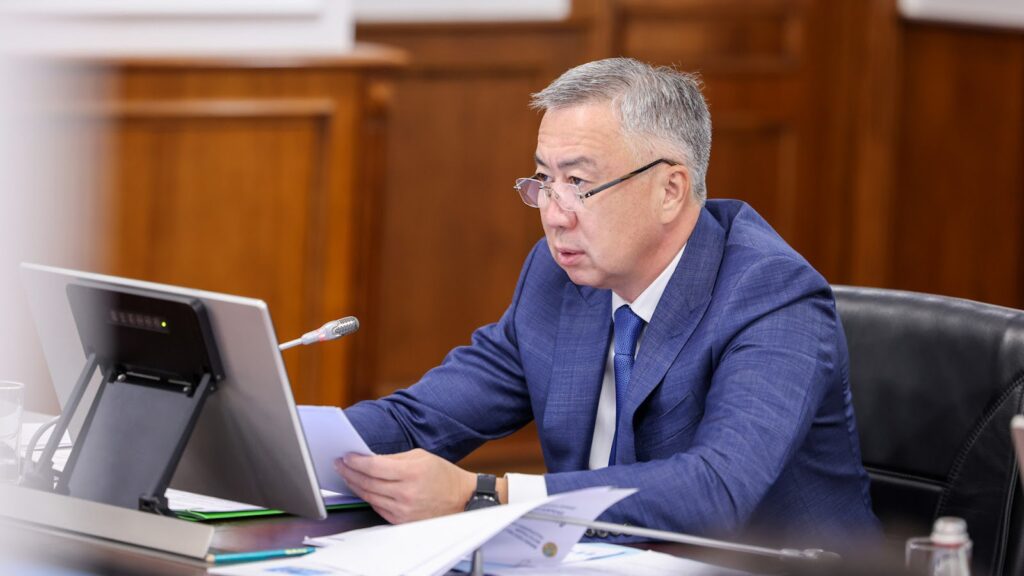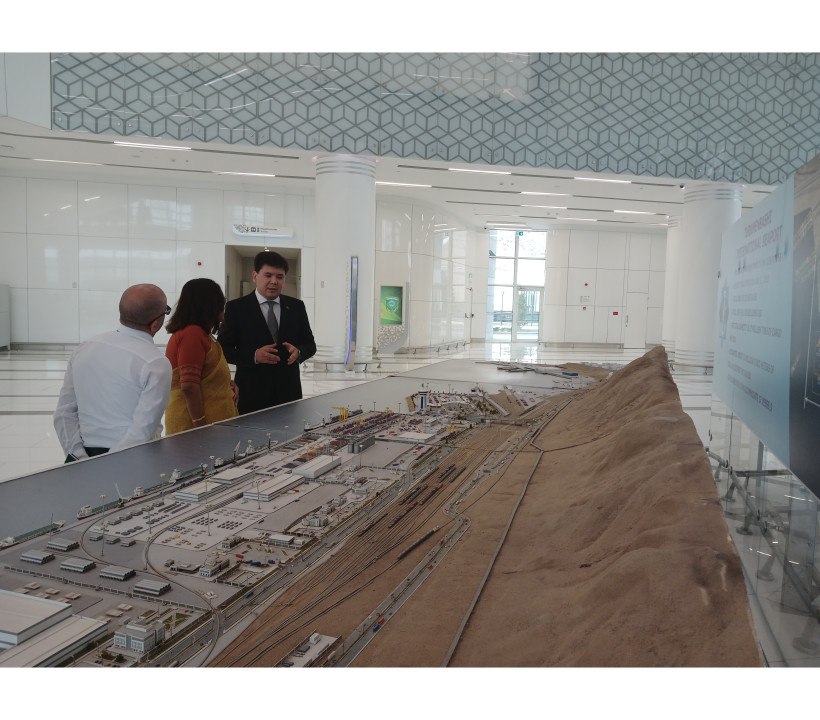Kazakhstan and China to Build Container Hub in the Port of Aktau
Kazakhstan’s national railways company, Kazakhstan Temir Zholy (KTZ), has announced that KTZ Express (a subsidiary of KTZ), China’s Lianyungang Port, and Kazakhstan’s Aktau Sea Trade Port have signed the founding documents of a joint venture to construct a container hub in the port of Aktau. The documents were signed on September 20 in the Chinese city of Xi'an. The project has received support from the governments of Kazakhstan and China as part of China’s Belt and Road initiative. The project will strengthen Kazakhstan's position in the international logistics system. The planned container hub's location on the Trans-Caspian International Transport Route (TITR), or the Middle Corridor, will further increase the route's attractiveness and the volume of transit traffic. The Lianyungang Port is a longstanding partner of KTZ Express. Over the past ten years, they have implemented two joint projects: the Kazakh-Chinese terminal in the Port of Lianyungang and Khorgos Gateway, the largest dry port in Central Asia located on the Kazakh-Chinese border. Also on September 20, a container train departed along the TITR from Xi'an on the route Altynkol—Aktau (Kazakhstan)—Baku (Azerbaijan)—Poti (Georgia)—Burgas (Bulgaria)—Belgrade (Serbia)—Hamburg/Duisburg/Budapest. The heads of the railway administrations of China, Kazakhstan, Azerbaijan, and Georgia attended the departure ceremony. The train, consisting of 55 40-foot containers, was assembled at the Kazakh-Chinese Xi'an terminal. It will travel about 7,000 km to Baku in 8-11 days and then reach its final destination in Budapest in 25 days. The reduced delivery time was made possible by the cooperation of the railway and port administrations of the TITR member countries. The Kazakh-Chinese terminal in the dry port of Xi'an was opened in early 2024. Today, 30% of all container trains from China to Europe via Kazakhstan are formed in the dry port. According to KTZ, thanks to the terminal in Xi'an, cargo transit along the TITR increased 20-fold in the first eight months of this year compared to last year. The delivery time to Azerbaijan has been reduced to 11 days and to Georgia to 14 days.






